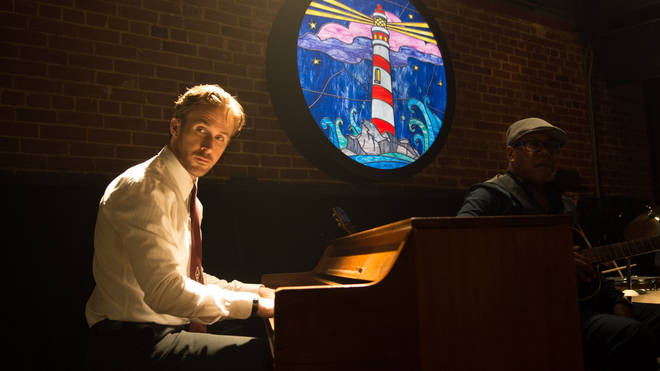... and one who definitely didn’t!

Among the annals of actors who have made uncomfortable attempts to mime playing an instrument (we’re looking at you, Jeremy Irons), here are a few who did it for themselves…
Ryan Gosling – La La Land
It’s a huge compliment to Gosling that most people assume his piano close-ups were played by a jazz double – but it was all him.He said: “I had to play ‘City of Stars’ for six months, for hours every day. It’s a lot of time alone, and you become a bit anti-social. Every time I tried to have a conversation with someone during that rehearsal period, I felt like Bambi on ice.”Joaquin Phoenix and Reese Witherspoon – Walk the Line
Joaquin and Reese's performance as country-singing duo Johnny Cash and June Carter was ridiculously impressive. Trained by Roger Love, the actors were rumoured to have nearly quit over the difficulty of learning to sing and play the guitar at the same time. But just watch them together in ‘Time’s a Wastin’’ – their musicality is perfect, and their chemistry? Through the roof.Adrien Brody – The Pianist
To prepare for his role as Chopin virtuoso Szpilman, Roman Polanski forced Adrien Brody to practise piano for a gruelling four hours a day. Plus, in order to truly inhabit a man who had lost everything, Brody also left his girlfriend, gave up his apartment, sold his car, starved himself and lived in solitary confinement in Europe. Yay acting!It all (sort of) paid off in 2003, when Brody became the youngest person to win an Oscar for Best actor in a leading role. Here he is, playing Chopin’s beautiful Ballade in G minor with no dubbing whatsoever:Matt Damon and Jude Law – The Talented Mr Ripley
Damon and Law learned to play piano and saxophone respectively to create this memorable jazz club scene. However, although Damon’s piano training enabled him to play all the proper fingering, the music we hear is actually played by pianist Sally Heath and Gabriel Yared, who composed The Talented Mr Ripley soundtrack.Robert Downey Jr – Chaplin
To channel Charlie Chaplin, the silent film legend who always carried his violin with him, Downey Jr learned to play the violin (and tennis, for that matter) with his left hand – just as Chaplin did. 10/10 for effort.Bill Murray – Groundhog Day
Despite using a double for the close-ups, Bill Murray learned just enough piano to play some of Rachmaninov’s ‘Rhapsody on a Theme by Paganini’. Some of the miming looks a tad questionable, but in the wider shots, it was apparently all Bill.Hugh Grant – About a Boy
Grant had guitar lessons from British composer Paul Englishby to create this cringey scene from About a Boy. Sure, the actor’s playing and singing are musically questionable, but we want this scene to be horribly awkward – and that’s exactly what Grant gives us.Rachel Weisz – The Brothers Bloom
Weisz’s role in The Brothers Bloom required her to play accordion, violin, guitar and banjo in the space of 10 seconds – so she had lessons in all four instruments. It isn’t totally clear whether the music we hear in the film is actually played by Weisz, but the accuracy of her fingering certainly gives a good impression of it.Nicholas Cage – Captain Corelli’s Mandolin
Before Paul Englishby taught guitar to Hugh Grant, he was busy making sure Nicholas Cage’s mandolin skills were in ship-shape for Captain Corelli’s Mandolin.“Cage actually played it and there is lots of footage of him doing that. It was incredible,” said Englishby. “He really is very talented. Nicolas used to go away for the weekend. He had a private jet and one weekend he asked me to go to Venice with him so he could have his music lessons.”
But not all actors have braved the real deal…
Christopher Walken – A Late Quartet
Despite his loveability, there’s no way Walken could have passed off this illogical bowing action as authentic. We’d suggest a direct line to Yo-Yo Ma for the sequel…
The Romantic Piano Battle, by Edoardo Brotto
Loading...
-




